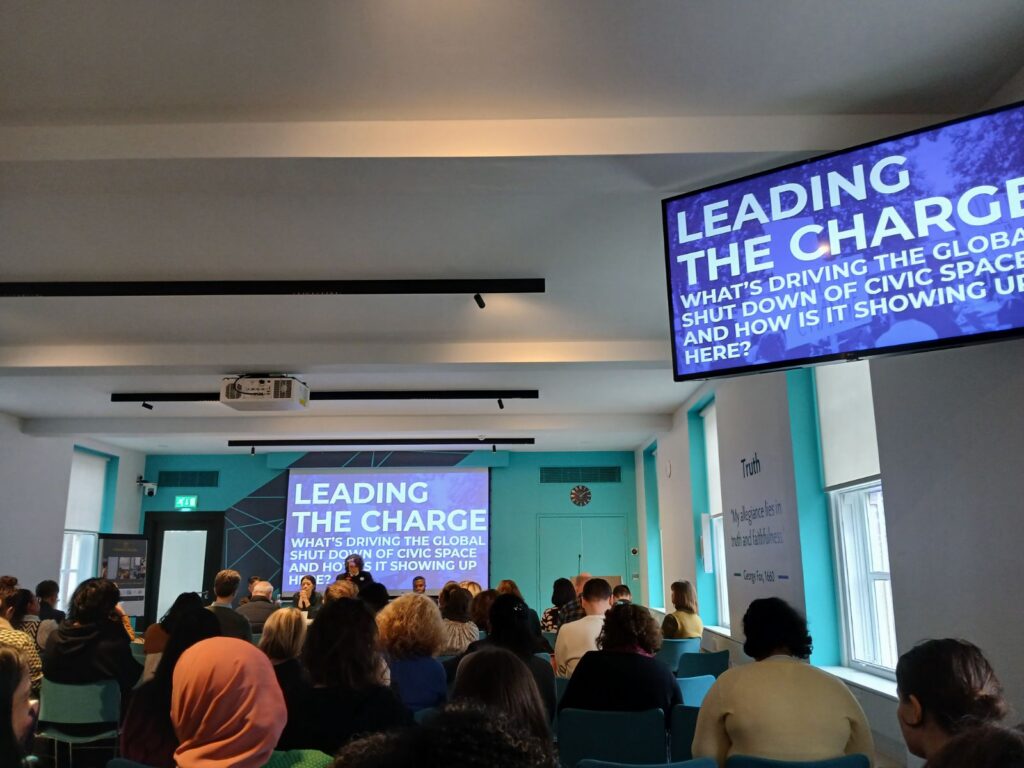OUR RISK APPROACH IN PRACTICE

Written by Catherine Scott
Head of Governance and Innovation
This blog is part of a series on risk. If you’re interested in learning more, check out blog 1 on what is risk and why it matters and blog 3 on navigating power dynamics in risk management.
In the first blog of our series on risk, we explored the concept of risk and how traditional risk management approaches often fall short in the context of social change. We shared our approach to risk at The Social Change Nest, highlighting our commitment to a living, trauma-informed, and human-centred approach.
In this blog, we’ll take a closer look at how these principles are put into practice, with a case study that illustrates our approach, demonstrating how we support changemakers working in areas traditionally seen as ‘high-risk’ and ensure their vital work continues safely and effectively.
Our Principles in Practice
Our principles and risk appetite are not just things we have written down and stored away. They shape all our actions and decisions. This includes actively supporting areas and work traditionally seen as “high-risk” as we believe that not doing so poses a greater risk to civil society and social justice than supporting the work itself.Our commitment to these areas reflects our belief that effective risk management must include addressing the root causes of societal issues.
Case Study (please note the organisations name has been removed at their request due to the current political context. We don’t want to risk their safety just for a blog)
One area where we’ve put our trauma-informed approach into practice is distributing grants in Palestine. Our standard due diligence process for international grant distribution uses some traditional methods of verifying identity and activity of grant recipients. After speaking with the group, we realised that we needed to adapt this given the context of the work and geographical area. Working together, we co-designed a due diligence process that respects the local environment, using community verification and flexible documentation methods to ensure thorough but context-sensitive checks. We prioritised a trauma-informed and human-centred approach, allowing us to support their vital work without compromising the safety and trust of the communities involved.
By staying true to our risk management principles, we have not only supported by distributing grants effectively, but also avoided compromising the safety and trust of communities involved. This approach has enabled us to navigate complex environments more effectively, maintain high standards of accountability and transparency, and continue to support positive change and social justice.
Understanding and managing risk is an evolving journey. We have created a risk management approach in fiscal hosting that focuses on the broader impact on civil society, underpinned by our belief that taking calculated risks can create space for much-needed social change and innovation.
However, risk management can never be an end in itself. Our role as a fiscal host is to hold the risk alongside, and sometimes on behalf of, others. This can and does lead to all sorts of complications from the mundane challenge of finding the right insurance to the psychologically complex othering of self manifested in contract law and interpersonal arguments. It throws into question who really holds the liability, mitigation and responsibility within this work. Our next blog will explore where this usually sits and where and how we can challenge it to avoid perpetuating unhelpful power dynamics.
About The Social Change Nest
The Social Change Nest CIC (SCN) has a vision of a vibrant, thriving civil society where social change happens from the ground up – and the power to create it is open to all.
We exist to tear down the barriers that prevent people from creating change. We do this by providing impact-led fiscal hosting, grant distribution, grant management, capacity building and infrastructure support to changemakers around the world. Our support enables them to take collective leadership on the things that matter most to them and in doing so, increase civil society space.
Our aims are to:
- Channel funding to grassroots groups
- Support grassroots groups with their admin, skills and capacity
- Inspire change and engagement among funders
Since launching in 2020, we’ve helped distribute over £16.5 million to grassroots groups and movements and supported funders to get their money into the hands of the people and communities that need it most.
- Blogs
Get funder insights to your inbox!
Including trends on places in need of funding, and insights on what wraparound support groups need to thrive

